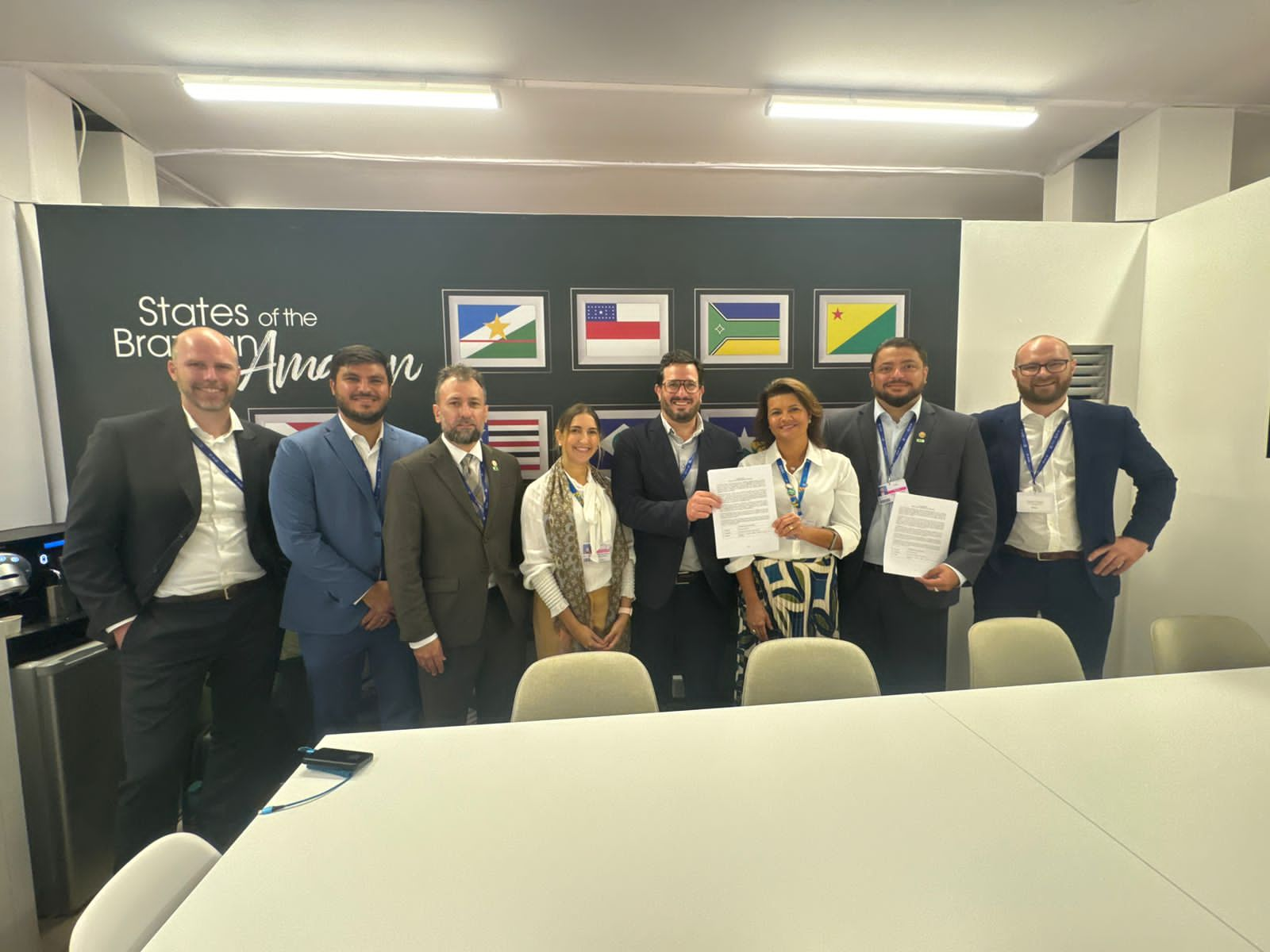In a groundbreaking move at the 28th UN Climate Change Conference (COP28) in Dubai, Acre, a founding member of the Governors’ Climate and Forests Task Force (GCFTF), achieved a historic milestone by becoming the first Brazilian state to sign a Term Sheet with Emergent. This significant step sets the stage for a binding Emissions Reduction Purchase Agreement (ERPA), opening avenues for the supply of up to 10 million high-integrity forest carbon credits to the LEAF Coalition from 2023 to 2026.
The Term Sheet, inked during COP28, symbolizes the swift progress made by Emergent and the state government of Acre toward securing substantial financing to safeguard Acre’s invaluable forests. Although non-binding, the agreement marks a commitment from both parties to finalize and sign the ERPA in 2024, showcasing their dedication to advancing forest conservation on a meaningful scale.
ERPA, short for Emissions Reduction Purchase Agreement, is a pivotal instrument in the fight against climate change. These agreements serve as a commitment from sellers, like Acre, to reduce emissions from deforestation and degradation. In return, they receive financial support from buyers, such as the LEAF Coalition, who seek to offset their own emissions by investing in sustainable forest management and conservation initiatives.
The significance of ERPA lies in its potential to channel substantial funding into forest protection efforts. By supplying forest carbon credits to entities like the LEAF Coalition, Acre can unlock financial resources crucial for sustaining its conservation initiatives. The 10 million carbon credits, spanning from 2023 to 2026, exemplify the tangible impact that such agreements can have on incentivizing responsible land use practices and preserving biodiversity.
The signing of the non-binding Term Sheet between Acre and Emergent at COP28 holds particular significance in the broader context of the Governors’ Climate and Forests Task Force (GCFTF) announcement on funds for the new forest economy. This pivotal step by Acre aligns seamlessly with the GCFTF’s call to action, emphasizing the urgent need for collective efforts to mobilize finance for the sustainable development of forested regions. By forging ahead with agreements like the ERPA, Acre exemplifies a proactive stance in the pursuit of innovative solutions for forest conservation. This alignment signifies a unified commitment among regions and organizations to actively engage in the economic transformation necessary for building resilient and sustainable forest economies, as underscored by the GCFTF during COP28.
This announcement echoes a broader trend of global collaboration for forest conservation. In parallel, Costa Rica and Ghana have also secured landmark deals to supply forest carbon credits to buyers within the LEAF Coalition. Earlier this year, the State of Tocantins in Brazil also signed a major commitment with Mercuria Energy Trading Company. These agreements highlight a shared commitment to combat deforestation and its associated climate impacts.
ERPA agreements, when executed, play a dual role. On one hand, they provide financial support for regions like Acre, enabling them to implement sustainable practices and protect their forests. On the other hand, they offer corporations and countries a credible means of fulfilling their climate commitments by investing in projects that actively contribute to emission reductions.
As the news unfolds, the importance of such agreements reverberates beyond individual regions. They represent a collective effort to address climate change by valuing and preserving our planet’s essential ecosystems. To delve into the details of this historic achievement and learn more about the ERPA between Acre and Emergent, the official press release can be accessed here.
In a world grappling with climate challenges, Acre’s commitment and the collaborative efforts of governments and organizations worldwide underscore the critical role ERPA agreements play in steering us toward a more sustainable and resilient future.

